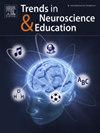It’s time to reconsider: the neuropsychology of belief change
IF 3
Q2 NEUROSCIENCES
引用次数: 0
Abstract
Purpose
The consequences of students harboring false beliefs that contradict scientific evidence include reasoning difficulties and applying inaccurate information to problem solving. Relying on unsupported beliefs undermines judgment, fosters irrational reasoning, and is detrimental to the best interests of society. However, many belief change initiatives fail, presumably because conventional approaches to belief change conflict with how the brain processes instrumental and valenced information.
Method
To provide a more reliable and objective explanation as to why some knowledge reconstruction efforts are transitory, fragmented, and superficial, neuropsychology evidence was investigated to supplement existing behavioral belief-change research. Neuroscience findings related to belief change were summarized by describing the biology of knowledge reconstruction and why some research-based practices (particularly refutational texts) may stand in direct contrast to neuropsychological interpretations of knowledge revision. Specific applied strategies were advanced.
Findings
The success of changing minds depends on effectively modifying false beliefs by focusing on the prospective gains from belief revision rather than emphasizing the risks associated with maintaining existing beliefs. Additionally, cognitive, not affective processing should be emphasized using refutations that employ information that generates positive perceptions, not forecasts of doom and debilitation. All recommendations align with neurological findings that suggest positive and rewarding information enhances the probability of adaptive neuromodulation leading to brain plasticity.
是时候重新考虑:信念改变的神经心理学
目的学生持有与科学证据相矛盾的错误信念的后果包括推理困难和应用不准确的信息来解决问题。依赖没有根据的信念会破坏判断,助长非理性推理,损害社会的最大利益。然而,许多信念改变计划失败了,大概是因为传统的信念改变方法与大脑处理工具和价值信息的方式相冲突。方法利用神经心理学证据,对已有的行为信念改变研究进行补充,以更可靠、客观地解释为什么某些知识重建工作是短暂的、碎片化的和肤浅的。通过描述知识重建的生物学,以及为什么一些基于研究的实践(特别是反驳文本)可能与知识修正的神经心理学解释直接相反,总结了与信念变化相关的神经科学发现。提出了具体的应用策略。研究结果改变思想的成功取决于通过关注信念修正的预期收益而不是强调与维持现有信念相关的风险来有效地修正错误信念。此外,应该强调认知处理,而不是情感处理,使用反驳,使用产生积极感知的信息,而不是厄运和衰弱的预测。所有的建议都与神经学研究结果一致,表明积极和有益的信息增强了适应性神经调节导致大脑可塑性的可能性。
本文章由计算机程序翻译,如有差异,请以英文原文为准。
求助全文
约1分钟内获得全文
求助全文
来源期刊

Trends in Neuroscience and Education
NEUROSCIENCES-
CiteScore
6.30
自引率
6.10%
发文量
22
审稿时长
65 days
 求助内容:
求助内容: 应助结果提醒方式:
应助结果提醒方式:


